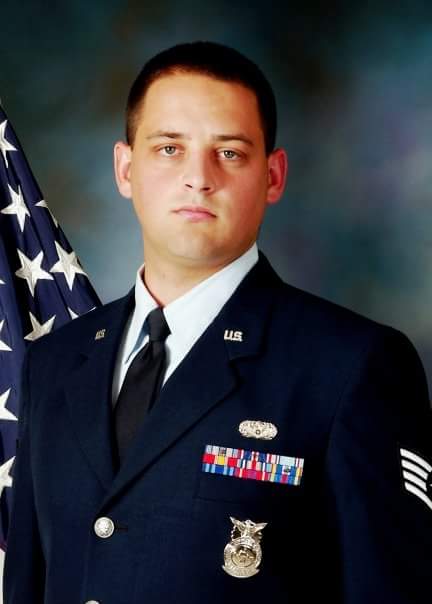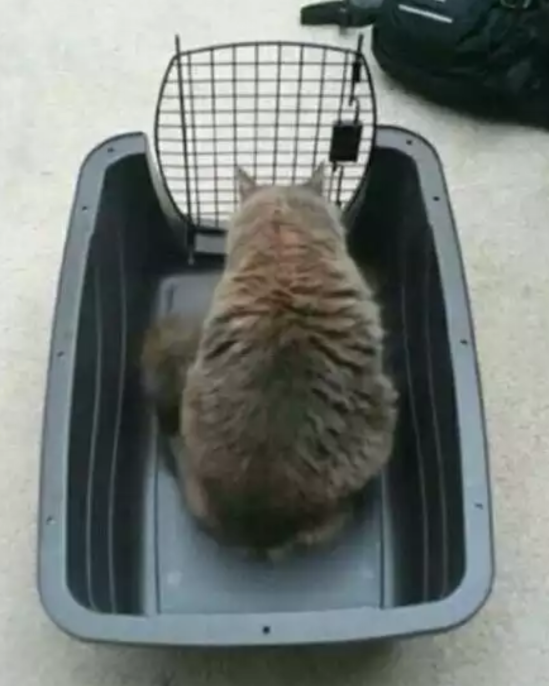I started this blog site six years ago. It began with the intention to expand mentoring within the fire service although it has transitioned into a place where I relieve my frustrations and let others know that they are not alone in their fire service related concerns.
I thought that it would be neat to look at my career, department, and life the way I did when I started this blog. My first post was meant to be inspirational… looking at the past year and pledging to be a better officer the next year. I want to maintain that attitude and while my life is vastly different now than it was six years ago, I am committed to continual development and improvement.
With that lets get to my to ten realizations learned over the past year as a Fire Chief.
Number 10: Never give up staff positions until you fully understand the situation.
While many will have their opinion on my biggest mistake as a new chief, I firmly believe the biggest (to date) was to give up a second deputy position. To be fair, it hadn’t been filled for a long time and when I came in, it was difficult knowing who I could trust and who was out to trip me up. I fully expected to be able to add it back when the justification existed. I have since realized that it is very difficult to add new positions and I would have been better off freezing it until I had time to fully analyze the situation.
Number 9: Your badge and position come with its own history and failures that are now yours whether you deserve them or not.
I knew starting in a new department was a doubled edged sword. While the people did not know of my past failures or issues, they also did not know my reputation or track record of being a solid firefighter and caring leader. What I did not realize is that the badge of chief came with its own history that was now mine to own. Every mistake of previous administrators was stacked against me. I promised to give everyone a clean slate when I arrived but I started off with every mismanaged decision, every untruth ever told, and every failed project. It doesn’t seem like a big deal but when some of my predecessors didn’t have a great reputation, I suddenly found every honest mistake I made being met with hyper criticism. I hadn’t built the trust or history with this department that I once had. If I had made the same mistake in my previous department, it would be less critical as people knew who I was and how I operated.
Number 8: Every decision made will positively affect some but negatively affect others.
I have always strived to find win / win scenarios when dealing with issues. While I know that it is impossible to always find a win, it didn’t stop me from trying. What I quickly realized is that for every good intention decision, it would negatively affect someone. I hate to think this is a numbers game but when dealing with over a hundred people it literally became a decision based on what’s best for everyone that would have the least number of negative impacts. I guess if I didn’t care about people the decisions would be easier but I remember working for these managers. Every decision easily defended based on cost savings, efficiency, or to meet a standard. I don’t want to be a great manager, rather a great leader. I know I have managerial restraints but I also know that a balance can be maintained. Is it difficult? Hell yes it is! Is it worth it? Again, a resounding yes!
Number 7: Take time for yourself and develop a healthy work / life balance.
I struggle with this realization. I remember telling my wife that the first year was going to be difficult as I had to play catch up and get to know everyone in the department. That was truly an understatement of the reality. I could work 24/7 and never get to the end of my work. I refer you to my article on the top 10 things that keep a chief awake at night. With so many issues, it is hard to take any time off for those of us who take this job seriously. While it is difficult advice to follow, the deputy mayor constantly reminds me that things weren’t broken over night so they can’t be fixed over night. I have taken up fishing, which my kids and wife love to do but still haven’t mastered a good balance. This lesson learned is easier to talk about than to accomplish.
Number 6: Own up to mistakes and pass on credit.
Notice I didn’t say own up to “Your” mistakes. That advice is easy and will help build a leader’s credibility. Go back to the understanding that when you are chief, everything good or bad in you department is your responsibility. Pass on the congratulations when your team performs well and take the hit for less than adequate performance. While you should take the hit, don’t forget to follow through with the issue to correct it and help the individual or individuals learn and grow. I find myself accepting the blame associated with lesson number 9 a lot.
Number 5: Stay away from politics but don’t be blind to their existence.
I have read articles on both sides of the fence concerning Fire Chiefs and politics. What I quickly realized is that I have no business being involved with it. I am not blind to the fact that my job has political impact and influence however, without knowing how far the players reach, I found myself in a dangerous place. What I focus on is being the best fire chief that I can be. While I haven’t successfully navigated a political change, I have watched others who have. These chiefs have embraced politics but stayed out of the mix. I’ll let you know how this lesson goes in the future!
Number 4: Remember the various levels of “team” you belong to and prioritize your loyalty correctly.
As you advance your career, it is easy to forget where your priorities lie. For me I have learned to hold my family as my primary team. I took this job only after soliciting family support. You cannot be a good or great fire chief without support at home. Missing family events is inevitable but you can’t sacrifice your family for your job all of the time.
My next priority team is at City Hall with my boss and peers. While some may say I should consider my department as the next priority, wait till the end to see how I cope with this. This level of team is where I can do the most good for my department. Every department I have ever worked at felt like we were the proverbial “red headed step children” of whatever organization we belonged to. While the fire service is different, we owe it to the larger organization to fit in as well as we can. I tell people that we cannot expect to sit at the table and get more than scraps if we do not fit into the bigger picture.
My third team is fire department managerial staff. Who wants to work for someone who doesn’t have their back and let them make decisions? I have to support, recognize, and give priority to those I trust to run things.
My final team in this example is the department as a whole. Now comes the explanation as to how I can still keep them in mind with all of the other levels of team above them. In order for me to keep my priorities straight and still be able to look out for my department as a whole, I have to align each subset with the goals and direction of the higher level. This includes communicating goals or directions that lower levels want to have accomplished so they can be included in higher priority team planning.
With this example, I must ensure my family is willing to support me with the decisions I make, my boss and peers need to know that I am considerate of their needs and direction, my supervisory staff have to have a clear picture of what is going on, and it all translates into working to make the department better for the team.
It is easy to lose sight of your priorities but refocusing will provide the best results. It is impossible to please everyone, but if you maintain your priorities you will be more consistent and be a good team player on all levels.
Number 3: Do not be afraid of setting high standards.
Especially when walking into a new organization, you need to clearly set yourself up for success. I found myself walking the line between setting a higher bar and not making major changes. It is difficult to expect people to immediately accept the new vision but I firmly believe firefighters are built to overcome any challenge set in front of them. If you set the bar too low there will never be any major momentum. The higher you set the goal the more you have to be prepared to navigate the resistances you will face. Again, don’t be afraid but don’t expect it to fall in place without a ton of personal effort.
Number 2: Find a mentor because you shouldn’t complain down the chain and it is lonely at the top.
Following a core leadership principle where complaints go up and praise goes down the chain, it is hard to handle the stresses you will face. When the proverbial buck stops with you, it is easy to take on more than you are capable of handling. You need to find a support network full of people at the same level. It is difficult to even talk to peers within your organization because fire departments are so different.
It also became clear to me when my wife left town on a trip with the kids that I do not have a huge pool of friends anymore. I don’t think you have to distance yourself from subordinates but if you choose to use work as your primary source of social interaction, it is full of problems. Again, there has to be life after work, generally of your friends are all from work, you will never get to put down the helmet and not be chief.
Mentors are a huge part of my success. Varying degrees of experience and access to their leadership styles help keep me balanced when I’m facing issues. It also helps when they call with their issue so I know the grass is the same on all sides of the fence. Ultimately, others can help you grow and learn. Find a mentor and be a mentor!
Number 1: Know who you are and what you stand for prior to becoming a chief!
My wife, mother, and pretty much anyone who has known me for any amount of time will acknowledge that I am a strong-willed individual. I can’t imagine doing this job if I wasn’t confident in who I am and what I stand for. Every decision made, no matter how good the intentions are, will end up upsetting someone. While it is ok to admit failures and regroup, you cannot be completely wishy – washy. Know where to draw the hard lines and at the end of the day make sure you can still look yourself in the mirror.
I’m sure there are a ton of life lessons I will gain from this new experience but one thing is for sure, I am grateful for this position and have come to fully understand the weight of the bugles. Be safe and make sure you are learning everyday!




 A very long time ago my mother insisted on teaching me a principle life lesson and twice in the past few days I had a clear parable to describe it within the fire service. This core principle, in finding happiness in life, was to change what could be changed, accept what could not, and to understand the difference between the two.
A very long time ago my mother insisted on teaching me a principle life lesson and twice in the past few days I had a clear parable to describe it within the fire service. This core principle, in finding happiness in life, was to change what could be changed, accept what could not, and to understand the difference between the two.
 If your department or organization is like mine then you may be looking at a situation that would have scared the crap out of our predecessors. This issue is promotion due to necessity rather than a true representation of experience needed to be successful. From my limited perspective, of the local area surrounding my department, I see many of us forced into finding someone who can check the NFPA standard or certification boxes on the job description whether they have real experience or not. An affectionate term one of our captains has given to these people is “paper firemen.” All certifications and education but no true experience. It is almost a complete 180 from our predecessors who were truly baptized by fire and may not have ever met the standards. While I fully support an educated fire service, as with all things there must be a balance. Just because I have read every book about thermal dynamics and fire strategy / tactics, without experience to back that knowledge, I am effectively blind to the truth.
If your department or organization is like mine then you may be looking at a situation that would have scared the crap out of our predecessors. This issue is promotion due to necessity rather than a true representation of experience needed to be successful. From my limited perspective, of the local area surrounding my department, I see many of us forced into finding someone who can check the NFPA standard or certification boxes on the job description whether they have real experience or not. An affectionate term one of our captains has given to these people is “paper firemen.” All certifications and education but no true experience. It is almost a complete 180 from our predecessors who were truly baptized by fire and may not have ever met the standards. While I fully support an educated fire service, as with all things there must be a balance. Just because I have read every book about thermal dynamics and fire strategy / tactics, without experience to back that knowledge, I am effectively blind to the truth.
